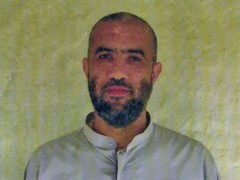Home » Kuwait » Press Releases » IRQ - News » Iraq: New reports of torture of Shawki Omar, arbitrarily detained since 2004
Shawki Omar was among the Arabs of non-Iraqi origin who were collectively suspected of belonging to the "armed resistance" against US forces after the US invasion of Iraq in 2003. Many of them were subjected to torture and subsequent arbitrary detention. Shawki Omar's case represents many of these aspects of human rights violations as well. After his arrest in October 2004, he had been held in a secret place for two weeks and his family was not informed about his whereabouts. He was beaten and tortured in order to extract confessions regarding his alleged links to members of the Iraqi insurgent movement. Several years later, these confessions were held against him during unfair trial. Unable to benefit from legal counsel either, he was sentenced to 7 years imprisonment for illegal entry to Iraq.
In addition to the years of arbitrary detention in dire prison conditions, Alkarama was informed by Mr Omar's family members that he was again subjected to torture in recent months. During his interrogation sessions which resumed at the end of November and the beginning of December 2012, he was subjected to beatings and threatened to be transferred to a secret detention facility for harsher treatment. Other detainees came out of similar questioning sessions with fractured bones and burns. "We [the prisoners] feel that the prison authorities are increasingly violent to the point that abuse becomes routine," he said when speaking to his wife.
Alkarama fears for the physical and mental health of Shawki Omar as he is in constant danger of torture, especially if he should be transferred to a secret detention facility. Certain detainees were recently transferred out of Karakh Prison and their current whereabouts are completely unknown, indeed. Therefore, Alkarama sent an urgent appeal to the Special Rapporteur on Torture, requesting his immediate intervention with the Iraqi authorities.
 Algeria
Algeria Bahrain
Bahrain Djibouti
Djibouti Egypt
Egypt Iraq
Iraq Palestine/Israel
Palestine/Israel Jordan
Jordan Kuwait
Kuwait Lebanon
Lebanon Libya
Libya Mauritania
Mauritania Morocco
Morocco Oman
Oman Qatar
Qatar Saudi Arabia
Saudi Arabia Sudan
Sudan Syria
Syria Tunisia
Tunisia United Arab Emirates
United Arab Emirates Yemen
Yemen Other Countries
Other Countries


